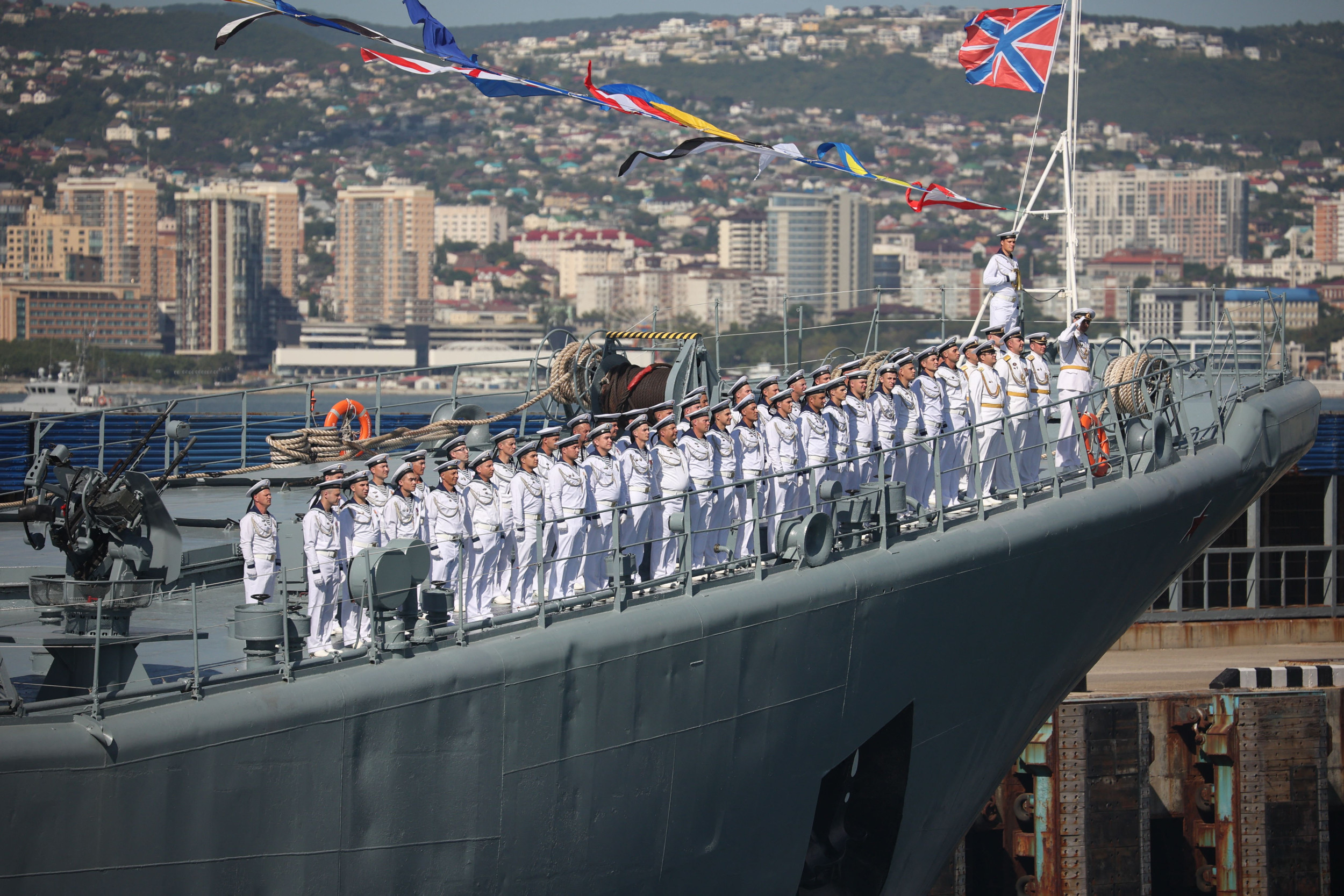What a difference a few weeks can make. As recently as this summer, the world seemed to be going Iran's way.
The campaign of terror carried out by Hamas on Oct. 7, 2023, succeeded in denting Israel's aura of military invincibility, while the resulting conflict in Gaza helped isolate Jerusalem on the world stage. Israel's normalization with the Gulf States, which had started to profoundly marginalize the Islamic Republic, also seemed to be a casualty of the new war. Meanwhile, timid American regional policy, and the Biden administration's overriding fear of a wider Mideast war, led to a persistent failure on Washington's part to hold Tehran accountable for its regional troublemaking.
Unsurprisingly, Iran's leaders had begun to make big plans. Their regime was advancing in Latin America, where weak regimes and leftist politics provided ample opportunities for Tehran to expand its influence and stoke anti-Americanism. Iran was insinuating itself into Africa, building ties to substate actors like the Polisario Front, and working to expand military contacts with war-torn Sudan. Officials in Tehran even announced plans to stake a claim to the South Pole.
But that was before Israel opened a "northern front" against Iran's principal terror proxy, Hezbollah, earlier this fall. That effort has proven remarkably successful; in a stunningly short period of time, it has crippled or killed thousands of the militia's high- and mid-level operatives, destroyed most of its stockpiles of short- and medium-range rockets, and eliminated the group's longtime leader, Hassan Nasrallah.
The crowning blow, however, came on Oct. 26, when Israel launched an aerial campaign against the Islamic Republic. The offensive, a delayed retaliation for Iran's massive ballistic missile salvo of Oct.1, was more limited than many observers had expected. Nevertheless, it was enormously impactful, disabling Iran's Russian-provided air defenses and destroying the regime's ability to produce ballistic missiles.
For Iran, the collective consequences are nothing short of ruinous. Hezbollah, which Iran had long used as a tool to threaten Israel, is now a shell of its former self, with only limited ability to deter additional Israeli action against the regime or its nuclear program. Meanwhile, the destruction of Iran's Russian-provided air defense architecture has left vital regime assets (and its personnel) defenseless against future strikes.

But if the Iranian regime is down, it's decidedly not out. Supreme Leader Ali Khamenei has vowed that the Islamic Republic would carry out a "strong and complex" reprisal, and perhaps it will. More broadly, however, Iran can be counted on to try and restore its strategic position. It is liable to do so in at least three ways:
—Military Expansion: For years, the Iranian regime has relied heavily on asymmetric capabilities—from proxy groups to ballistic missiles and drones—to project power and influence politics throughout the Middle East and beyond. Meanwhile, the regime's conventional warfighting capabilities have atrophied, hit hard by official neglect as well as Western sanctions. That's something the Islamic Republic will now seek to correct. As The Foreign Desk reported, Iran's government has announced plans to triple its national defense budget, to more than $30 billion. The expansion is a clear effort on the part of the Iranian regime to strengthen its strategic capabilities, and rebuild deterrence, in the aftermath of the Israeli strike.
—Domestic Repression: For most of the past two years, Iran's regime has been on the back foot at home, facing a sustained groundswell of popular discontent. The problem is acute; what started as unrest over the September 2022 death in custody of Kurdish-Iranian activist Mahsa Amini has become a more fundamental rejection of the Islamic Republic itself. At the same time, a range of socio-political factors, from declining religiosity to economic malaise, have profoundly diminished the legitimacy of the country's clerical regime. Iranian authorities have responded in increasingly draconian ways, including a new crackdown on women, mass arrests and killings, and widespread internet shutdowns. And now that Israel has shown the regime to be strategically vulnerable, all this will undoubtedly intensify as Iranian authorities work overtime to make sure opposition elements don't seize the political opening.
—Nuclear Progress: Perhaps most decisively, we are likely to see a significant acceleration of Iran's nuclear program. Up to now, Tehran has relied on an incremental strategy, banking on the absence of a serious response from the West to make gradual gains in its atomic work. That approach, however, is no longer viable. Without a credible potential threat of retaliation by Hezbollah, and with its facilities undefended, Iran's nuclear program is vulnerable like never before. That's why regime officials have started to shift the country's nuclear doctrine, and why more and more observers are convinced we are now on the cusp of an Iranian "sprint" for the bomb.
Tehran is banking on the fact that it still has the ability to regain strategic ground—and tilt the geopolitical status quo in the region back in its favor. What isn't nearly as apparent is what more Jerusalem, and Washington, will be prepared to do to prevent that from happening.
Ilan Berman is senior vice president of the American Foreign Policy Council in Washington, D.C.
The views expressed in this article are the writer's own.






.png)













 English (US) ·
English (US) ·